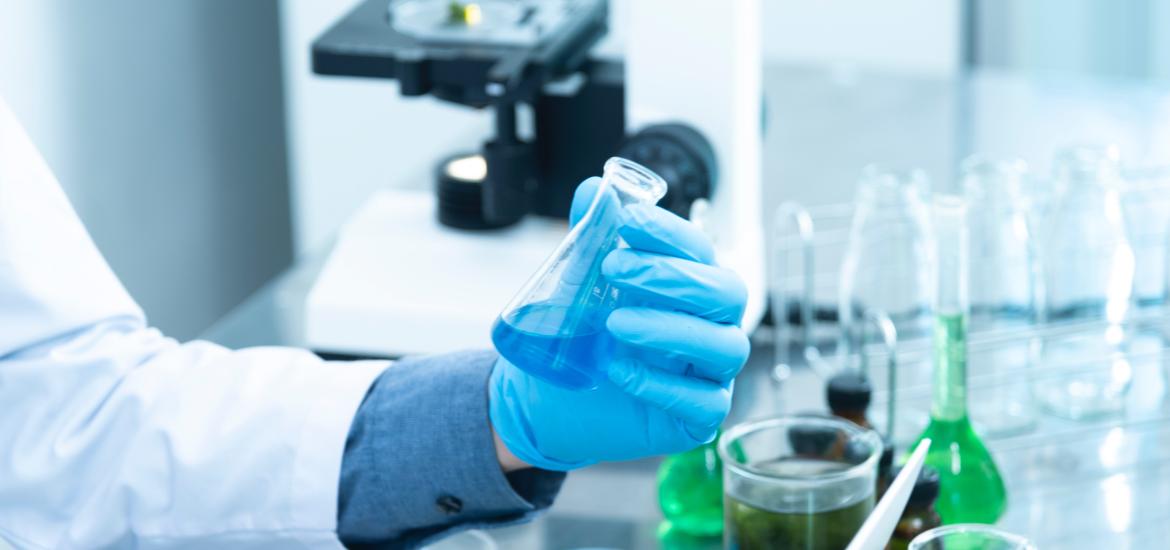
ASCO 2023 – Merck’s Kelun deal gets its first validation
Asco data suggest that the TROP2 ADC Merck & Co licensed from Kelun is at least as good as Gilead and Astra/Daiichi’s assets.
Asco data suggest that the TROP2 ADC Merck & Co licensed from Kelun is at least as good as Gilead and Astra/Daiichi’s assets.

A resurgence of interest in antibody-drug conjugates has seen the likes of Pfizer, AstraZeneca and especially Gilead spending billions. Merck & Co, on the other hand, struck two low-key deals with China’s Kelun for an early-stage portfolio of ADCs, the most important of which, MK-2870, just yielded its first human data.
MK-2870 is an ADC against TROP2, and its Kelun-sponsored lung cancer trial was the subject of an Asco poster today. Those following the industry’s two most advanced TROP2-targeting ADCs, Gilead’s Trodelvy and Daiichi Sankyo/AstraZeneca’s datopotamab deruxtecan, might well see the data as showing MK-2870 to be at least as good.
Notably, lung cancer could be a big use, and this is the primary focus for datopotamab, whose Tropion-Lung01 study readout is one of the sector’s most important 2023 catalysts. On the other hand Trodelvy, which Gilead acquired in the $21bn takeover of Immunomedics, was mediocre in the Tropics-02 trial that backs its US breast cancer indication.
Competitive?
Today Kelun presented an ASCO abstract of a Chinese trial in late-line NSCLC, where 44% of 43 evaluable patients developed investigator-assessed partial remissions.
How does this shape up against competitors? Tropion-Lung01 tests datopotamab in the less-advanced PD-(L)1-relapsed setting, but an earlier phase 1 trial in various cancers yielded 24% ORR in its NSCLC cohort. Meanwhile, in a basket trial Gilead’s Trodelvy managed an ORR of just 17% in NSCLC, a fact that could make MK-2870 look best in class.
Of course, cross-trial comparisons are imperfect, and baseline characteristics differ. The Kelun-sponsored study comprises Chinese hospitals only, and Chinese NSCLC patients tend to have more EGFR-driven disease than those in the west; EGFR mutation-positive NSCLC is more responsive to chemo, which is ultimately what an ADC delivers.
More patients in the Kelun trial were EGFRm-positive than in the datopotamab study, and this appears to have driven up efficacy in all-comers. Considering only EGFR wild types could give a fairer comparison, and this yields 26% ORR for MK-2870 versus 19% for datopotamab – still impressive but basically in line.
Still to be determined is whether these patients might have to be enriched for TROP2 expression – a possible key determinant of market size. The Kelun study's lead author, Dr Wenfeng Fang, said Trop2 expression had been analysed retrospectively, but it is unclear whether it correlated with remissions.
Kelun’s poster also revealed MK-2870 (which the Chinese company still codes SKB-264) to contain a sulfonyl pyrimidine CL2A carbonate linker and belotecan-derivative payload, carrying a drug-to-antibody ratio of 7.4.
Whatever MK-2870’s characteristics, with Merck now behind it, and datopotamab set to deliver all-important Tropion-Lung01 data, NSCLC might be about to become a key battleground for TROP2-targeting agents.
TROP2-targeting ADCs in lung cancer: a cross-trial comparison
| Company | Project | Trial | Setting | NSCLC data | |
|---|---|---|---|---|---|
| Gilead (ex Immunomedics) | Trodelvy | Immu-132-01 basket study | Late line NSCLC (n=54) | ORR 17% | mPFS 4.4mth |
| Tropics-03, NSCLC cohort | 2L NSCLC | Not disclosed | |||
| Evoke-01 | 2L NSCLC vs docetaxel | Ends May 2024 | |||
| AstraZeneca/ Daiichi Sankyo | Datopotamab deruxtecan | Tropion-Pantumor01 | Late line NSCLC (n=180) | ORR 24% | mPFS 5-6mth |
| ORR 19% in EGFRwt, vs 63% in EGFRm | |||||
| Tropion-Lung01 | 2L NSCLC vs docetaxel | Data Q2 2023 | |||
| Merck & Co/ Kelun | MK-2870/ SKB-264 | NCT04152499 | ~3L NSCLC (n=43) | ORR 44% | mPFS 6.2mth |
| ORR 26% in EGFRwt, vs 60% in EGFRm | |||||
Source: Asco & clinicaltrials.gov.
Is there still room for Trodelvy? The Gilead drug is in Evoke-01, a phase 3 study in a very similar setting to Tropion-Lung01 that is due to end in May 2024. However, readout of an NSCLC cohort from yet another mid-stage multi-tumour Trodelvy trial, Tropics-03, never materialised.
A lung cancer failure for Trodelvy in lung cancer it would underline the disappointment Gilead investors feel about the $21bn Immunomedics deal. For its part AstraZeneca gave Daiichi $2.4bn up front across two transactions focused on ADCs – but at least that brought in Enhertu, a drug that is already revolutionising treatment of HER2-expressing cancers.
In May 2022 Merck paid Kelun $47m for undisclosed ADC projects later revealed to include MK-2870, following that last December with $175m for a further seven preclinical molecules. Given how relatively negligible Merck’s outlay has been so far, it would be incredible were Kelun to bring the company a viable, ready-made ADC platform.
580













